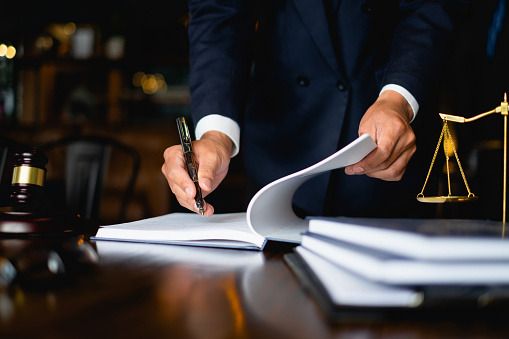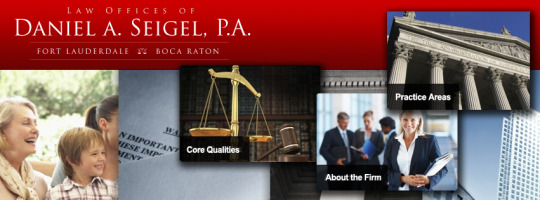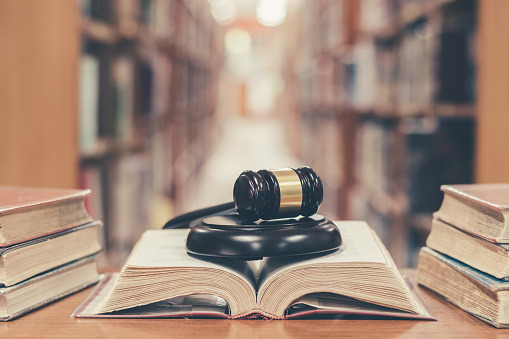#trust litigation attorneys
Explore tagged Tumblr posts
Text
Why You Need a Real Estate Litigation Attorney: Navigating Property Disputes with Expert Legal Support
1. Understanding Real Estate Litigation
Real estate litigation encompasses a range of legal disputes related to property transactions, ownership, and rights. These disputes can arise from various issues, including contract breaches, title defects, and landlord-tenant disagreements. In such tumultuous circumstances, the guidance of a seasoned real estate litigation attorney can prove invaluable.
2. The Importance of Legal Expertise
Property disputes often involve intricate legal frameworks. Navigating these complexities requires more than general knowledge; it necessitates the acumen of specialized estate litigation lawyers who understand the nuances of real estate law. Their expertise allows for strategic planning and effective representation in negotiations and court.
3. Common Types of Property Disputes
Property disputes can manifest in numerous forms, including boundary disagreements, zoning issues, and contractual conflicts. Each type demands tailored legal strategies, making the role of a real estate litigation lawyer essential for achieving favorable outcomes.
4. The Role of an Estate Litigation Attorney
An estate litigation attorney specializes in resolving disputes related to estates and trusts, ensuring that the decedent’s wishes are honored. Their involvement is crucial when conflicts arise among heirs or when questions of asset distribution emerge. Engaging a knowledgeable attorney can help prevent prolonged litigation and promote equitable solutions.
5. The Necessity of Experienced Representation
In property disputes, experience matters. Seasoned real estate litigation attorneys possess a profound understanding of legal precedents and local statutes. Their familiarity with the judicial system enables them to craft compelling arguments and navigate court procedures with confidence.
6. When to Hire a Real Estate Litigation Lawyer
Recognizing when to seek legal assistance can be pivotal. If negotiations with the opposing party falter or if you receive an unfavorable ruling, consulting a real estate litigation lawyer should be a priority. Early intervention can mitigate potential losses and streamline the resolution process.
7. Litigation vs. Alternative Dispute Resolution
While litigation is a common route for resolving property disputes, alternative methods, such as mediation or arbitration, may be viable options. An experienced estate litigation attorney can assess the specifics of your case and recommend the most appropriate course of action, balancing efficiency and effectiveness.
8. Navigating Trust Disputes
Trust disputes can be particularly convoluted, often involving multiple parties with conflicting interests. Trust litigation lawyers are adept at managing these intricate dynamics, safeguarding your rights and ensuring that the trust’s intentions are respected.
9. The Financial Implications of Litigation
Engaging in real estate litigation can incur substantial costs. However, having an experienced real estate litigation attorney can help maximize your chances of a favorable financial outcome. Their ability to navigate negotiations and settlement discussions can significantly impact the overall expense and result of your case.
10. The Value of a Certified Probate Expert
In cases involving estates and trusts, collaborating with a certified probate expert alongside your attorney can enhance your legal strategy. Their specialized knowledge in probate matters ensures that your case is handled with the utmost care and attention to detail.
11. Protecting Your Property Rights
Your property rights are fundamental, and defending them requires assertive legal representation. An adept estate litigation lawyer will work tirelessly to safeguard your interests, whether through litigation or alternative dispute resolution methods.
12. Conclusion: The Imperative of Legal Support
Navigating property disputes can be a daunting task, fraught with emotional and financial challenges. The expertise of a real estate litigation attorney is essential for effectively addressing these challenges. Their legal knowledge, strategic approach, and commitment to your case can make a significant difference in the outcome of property disputes, ultimately providing you with peace of mind and a path toward resolution. For those facing complex estate matters, partnering with proficient estate litigation lawyers and trust litigation attorneys is a wise investment in safeguarding your property rights and interests.
#estate litigation attorney#real estate litigation lawyer#real estate litigation attorney#estate litigation lawyers#trust litigation lawyers#trust litigation attorneys#estate trust litigation lawyer nj
0 notes
Text

All about trust litigation attorneys Mesa AZ Thies and Cook is reputed for holding knowledgeable trust litigation attorneys Mesa AZ, who assist with segregating the administration of a trust that once belonged to a deceased loved one. https://www.thiescook.com/probate-and-trust-administration.html
0 notes
Text

We can help you create an advanced healthcare directive and guide you through the process of developing a complete plan to protect you now and your family in the future. For more information contact our Estate Planning Attorneys in New Jersey and call us today at 856-214-8797.
#Wills Lawyers New Jersey#Wills Attorneys New Jersey Based#Special Needs Trusts Lawyers New Jersey#Probate Litigation Lawyers New Jersey#Medical Power Of Attorneys New Jersey#Conservatorships Attorneys New Jersey#Asset Protection Lawyers New Jersey#Estate Administration Attorneys New Jersey
0 notes
Text
Complete Estate & Probate Law: A Service Empowering & Protecting You
What are the main reasons to hire an attorney? Do you have an answer to this question? You might have seen many people booking appointments with and meeting a trust litigation attorney and others. But do you actually know why? Well, one needs an attorney to provide support and protect your rights.
Complete Estate & Probate Law is a brilliant service that everyone needs. It can be your perfect legal aid. You can meet the finest attorneys related to different cases at this firm. This firm has a lot to offer.
Estate & Trust Litigation:
Estate planning and trust are two different but essential components. People need the finest estate and trust attorney who can guide and assist them throughout the procedure. These attorneys remove the snow from the path of their clients. In short, they dismiss all the errors in estate planning and trust that could later become a problem for the family and inheritors. If you also need these attorneys at your service, you should go to Complete Estate & Probate Law. This law firm has the most experienced attorneys with skills and knowledge. They can recommend the best solution in your interest.
Guardianship for Disabled Adults:
Disabled people have their rights as individuals as well. But still, their decision-making abilities are a concern. Therefore, the court appoints a guardian for them who can make decisions in their interests. Guardianship for disabled adults is a big matter with a lot of complex legalities involved. However, a small help in this matter could be better for you to comprehend. You can get all the required help at Complete Estate & Probate Law. The professionals from this law firm can help dismiss all your perplexes. So, make sure to take their help as needed.
Special Needs & Planning:
Disabled people need proper assistance and support from the best attorneys in the field. If you are looking for an attorney for disabled, you should go to Complete Estate & Probate Law. This firm has been serving its clients with commendable services for years. You can always trust it for special needs and planning. Disabled people need support from, and their close ones know about it well. Therefore, the specialists from this firm assist you in addressing all the needs that you feel that your disabled loved ones require. You can always take assistance from this service according to your requirements.
Check out more at https://www.completelawkc.com/
Original Source:- https://bit.ly/46NSLAu
0 notes
Text
Hire a Probate Attorney Lawyer for Estate Administration in San Antonio
Hiring a probate attorney in San Antonio can give you peace of mind during a difficult time. With their in-depth knowledge of local probate laws and regulations, they can provide you with expert legal guidance tailored to your specific estate administration needs. The cost of hiring a probate attorney in San Antonio varies depending on the complexity of the estate. For more information visit at: https://san-antonio-probate.com/
#trust litigation#san antonio guardianship#san antonio estate planning#guardianship attorneys in san antonio
0 notes
Text


Law Offices of Daniel A. Seigel, P.A. 801 Northpoint Parkway, Suite 142 West Palm Beach, FL 33407 561-334-2800 Website
Dan Seigel is the President of Law Offices of Daniel A. Seigel, P.A., in West Palm Beach, FL, a law firm specializing in fiduciary disputes involving estates, wills, trusts, and guardianships.
Dan Seigel is a trust litigation attorney who places a premium on providing a "concierge" level of service, accessibility, responsiveness, and value for every client. He is also an estate litigation attorney who prides himself on serving as a legal advisor and counselor in navigating the emotional elements presented in each case.
Since founding the Law Offices of Daniel A. Seigel, P.A. in February 2012, Dan has enjoyed numerous successes and victories.









#estate litigation#probate litigation attorney#estate litigation lawyer#trust litigation attorney#inheritance lawyer#contest will lawyer#estate litigation attorney near me#probate litigation attorney near me#trust litigation attorney near me#estate settlement lawyer
1 note
·
View note
Text
The Legal Side of Starting A Business: Insights From Business Lawyer
Hiring a business lawyer can help you navigate the legal side of starting and running a business, ensuring that you're in compliance with all laws and regulations.
0 notes
Text
#Estate Planning Attorney#Estate Planning Lawyer#Trust And Estate Planning Attorney#Business Estate Planning#Trusted Estate Planning Attorneys#Civil Litigation Lawyer#Civil Litigation Attorney
0 notes
Text

#anti trust lawyer in mumbai#antitrust lawyer in mumbai#antitrust lawyers in mumbai#antitrust attorney in mumbai#competition law firm in mumbai#best antitrust law firms in mumbai#antitrust law firms in mumbai#anti trust lawyers in mumbai#antitrust litigation lawyer in mumbai#competition & antitrust corporate law firm in mumbai#competition & antitrust corporate lawyer in mumbai#antitrust litigation firms in mumbai#top antitrust lawyers in mumbai#anti trust law firms in mumbai#competition law solicitors in mumbai#competition law lawyers in mumbai
0 notes
Link
Trusts are effective tools for estate planning. They provide you the ability to decide how and when your assets are dispersed after your passing, lower gift and estate taxes, and steer clear of the hassles and expenses associated with probate. Let the trust litigation team at Luis E. Barreto & Associates assist you if you suspect that a trust has been improperly handled or that your deceased loved one was tricked, forced, or pressured into establishing the trust in a specific way.
#Luis E. Barreto & Associates#trust litigation miami#trust litigation attorney miami#estate litigation miami
0 notes
Text
(...)
"Set the scene for us: what is the ICJ, and why is the hearing taking place there?
The 1945 UN Charter — signed by all UN members, including Israel — affirms that the ICJ is the UN’s supreme legal organ. The Constitution establishes two powers for the Court: issuing advisory opinions, and ruling in cases between states. The Court’s verdicts are binding on the states that have signed the UN Constitution. A state can agree in an ad hoc manner that a particular dispute will be litigated by the ICJ, or invoke signed treaties containing a clause that establishes ICJ jurisdiction over disputes relating to those treaties.
Israel has always had reservations about the jurisdiction clause, and has refrained from agreeing to ICJ jurisdiction in all the hundreds of treaties it has signed, except one: the Genocide Convention. Article 9 of the Convention stipulated that if disagreements arise between the members over the Convention’s authority or interpretation, the ICJ is the place to hear them.
ICJ decrees are enforced by the UN Security Council. Chapters 6 and 7 of the UN Charter allow for a range of sanctions against countries that violate the Court’s ruling, such as economic sanctions, arms embargoes, and military intervention. The latter is rare but it has happened, for example in the first Gulf War.
Why did Israel sign up to ICJ jurisdiction in the Genocide Convention?
I’m not a legal historian; I can only guess. Israel was one of the initiators of the treaty, and historically one can understand why Israel would have pushed for such a treaty in the late 1940s and early 1950s. Secondly, I think that back then, the popular Israeli notion that we do not let gentiles judge us had not yet developed. We are talking about an era in which the international system had recently decided to establish a Jewish state. Maybe there was a little more trust in that system back then.
What constitutes a violation of the Convention?
(...)
It is defined as an act of extermination, or creating conditions that will annihilate a particular group with the intention of eradicating that group or even a distinct part of it.
The Convention, which was integrated into Israeli law in 1950, states that a soldier or civilian who kills a person, even one, while aware that he is part of a system aimed at annihilation, is guilty of the crime of genocide. In Israeli law, the punishment for this is the death penalty. This also applies to those who conspire to commit genocide, those who incite genocide, and those who attempt to participate in genocide.
What is South Africa basing its lawsuit on?
South Africa bases its accusation on two elements. One is Israel’s conduct. It cites a great deal of statistics about the indiscriminate, disproportionate attacks on civilian infrastructure, as well as about starvation, the huge number of casualties, and the humanitarian catastrophe in the Strip — horrifying statistics that the Israeli public is barely exposed to, because the mainstream media here does not bring them to us.
The second and more difficult element to prove is intent. South Africa is trying to prove the intent through nine dense pages of references to quotes by senior Israeli officials, from the president to the prime minister, government ministers, Knesset members, generals, and military personnel. I counted more than 60 quotes there — quotes about eradicating Gaza, flattening it, dropping an atomic bomb on it, and all the things we’ve gotten used to hearing in recent months.
South Africa’s case does not rely only on the fact that some Israel leaders have made genocidal statements. It further charges that Israel has done nothing in response to these statements: it hasn’t condemned the statements, it hasn’t dismissed from office the people who expressed them, it hasn’t opened disciplinary proceedings against them, and it certainly hasn’t opened criminal investigations. This, as far as South Africa is concerned, is a very strong argument.
Even if we haven’t heard the IDF Chief of Staff or the General of the Southern Command say these things, and we don’t have an operational order that says, “Go and destroy Gaza,” the very fact that these statements have been made by senior Israeli officials without sanction or condemnation sufficiently expresses Israel’s intention.
South Africa also pulled a little legal stunt to get here, correct?
Yes. The jurisdiction of the Court is determined when a dispute arises between the parties over the interpretation or application of the Convention. South Africa sent several letters to the Israeli government saying, “You are committing genocide.” Israel responded, “No we aren’t.” So South Africa said, “Okay, we have a dispute over the interpretation of the Convention.” That’s how it got the authority.
What can we learn from similar ICJ cases in the past, such as those regarding genocides in Bosnia and Myanmar?
First of all, we know from these cases that the burden of proof on South Africa is significantly lower for obtaining an interim order than for ultimately proving that Israel is committing genocide. We also know that this case will continue for years: the Bosnia case took 14 years; Gambia v. Myanmar is still ongoing. But the procedure for an interim order is fast.
Gambia filed its case against Myanmar on behalf of the Organization of Islamic States. It asked for an interim order stating that Myanmar must cease its military operations [against the Rohingya people]. The Court ruled that at this stage of the hearings, it did not need to determine whether the crime of genocide had been committed. What it needs to decide is whether, without an interim order, there is a real danger that the prohibitions set out in the Genocide Convention will be violated.
An interesting interim order was issued in that case, which I think has a good chance of being issued to Israel as well — not in the context of military activity, but of incitement. The Court’s order also required Myanmar to take enforcement actions and submit reports to the ICJ and Gambia on what it was doing to prevent genocide. As for the cessation of Myanmar’s military activity, this matter went to the Security Council, where both Russia and China threatened vetoes, but Western countries imposed sanctions and a military embargo anyway.
So even if South Africa fails to make the Court issue an interim order to stop Israel’s military activity, it could be that in the context of incitement — which enjoys full immunity in Israel — the Court will say that Israel needs to do something.
(...)
I know lawyers don’t like to wager on the results of court hearings, but if the ICJ does produce an interim order, what will that mean for Israel?
If the Court issues an order, the question is of course whether Israel will obey it or not. Knowing Israel, I expect that it will not obey the order, unless it can present the ending of hostilities as the result of its own independent decision, unrelated to the Court order.
There are good reasons for Israel to do this, because disobeying an ICJ order brings things to the UN Security Council. It’s true that the United States has a veto there, and therefore a resolution to impose sanctions on Israel would most likely be blocked. But vetoing an ICJ order regarding concerns that genocide is taking place would come at an enormous political price for the U.S. government, both domestically and internationally.
The Biden administration wants to portray itself as a government that sees human rights as one of its pillars. So it is likely that the United States would only veto such a resolution while imposing a significant cost on Israel in order to justify doing so, such as allowing the residents of northern Gaza to return to their homes, or entering into negotiations over two states — I don’t know.
But even if the United States doesn’t use its veto in that scenario, an interim order from the ICJ is likely to cause Israel serious problems.
There is such a thing as an international legal “deep state.” Jurists and judges listen to what important courts say. And when the ICJ, also known as the World Court, makes its rulings, national courts in most of the Western world take note. Therefore, if the ICJ rules that there is a danger of genocide being committed, I can imagine a British citizen turning to a British court and demanding that the UK cease trading arms with Israel. Another implication is that such an ICJ ruling would likely force the ICC’s chief prosecutor [Karim Khan] to open an investigation of his own.
(...)
Within what time period is the Court’s decision expected?
There are no set rules, but in the Gambia v. Myanmar case, there was a decision within a month. It should be remembered that this [Gaza] case will continue after the hearing on the interim order. Israel will have to present evidence that will exonerate it from the claim that it is committing genocide, but in doing so could get into difficulties with the ICC. For example, it may explain that it bombed a certain place because it was pursuing a military objective, but it may thereby make admissions that create a basis for the claim that it used disproportionate force."
...
#israel#palestine#icj case#genocide#didn't expect the interviewed to mention being the grandson of sociologist zygmunt bauman
130 notes
·
View notes
Text

All about trust litigation attorneys Mesa AZ
Thies and Cook is reputed for holding knowledgeable trust litigation attorneys Mesa AZ, who assist with segregating the administration of a trust that once belonged to a deceased loved one. https://www.thiescook.com/probate-and-trust-administration.html
0 notes
Text
At Posternock Apell, PC, our trusted estate planning lawyers are here to walk through the various strategies that can be used in protecting assets through the use of real estate for your disabled loved one. For more information contact our Estate Planning Attorneys in New Jersey and call us today at 856-214-8797.
#Wills Lawyers New Jersey#Wills Attorneys New Jersey Based#Trusts Lawyers In New Jersey#Trusts Attorneys In NJ#Special Needs Trusts Attorneys New Jersey#Probate Litigation Attorneys New Jersey#Medical Power Of Attorney New Jersey
0 notes
Text
Choose The Best Estate Planning Attorney In Texas
One of the most substantial godsends of dealing with a pro estate planning attorney entails developing a customized plan tailored to your individual necessities and providing you with the most relevant legal guidance possible for your scenario. Your selections will be legitimate and enforceable by law since you are going to collaborate with an apt attorney w ell-versed on your state's most recent estate planning legislation and can answer queries about your will & trust and assist with any revisions or adjustments. Bear that legal actions may swiftly deplete an estate's assets, leaving all heirs worse off. Consult an estate planning attorney right once.
#san antonio texas probate lawyers#estate planning in San Antonio#probate lawyer near me#probate attorney san antonio#trust litigation
0 notes
Text
#tumblr polls#harvey specter#saul goodman#annalise keating#woo young woo#phoenix wright#jennifer walters#elle woods#marshall eriksen#patty hewes#ally mcbeal#Vincent gambini#gerri kellman#suits usa#better call saul#how to get away with murder#extraordinary attorney woo#ace attorney#she hulk#legally blonde#how i met your mother#damages#ally McBeal tv#my cousin vinny#succession#lawyer#attorney#fandom polls#character polls#polls
28 notes
·
View notes
Text
Climate Lawsuits Are Exploding. Are Homicide Charges Next? (New York Times)
Excerpt from this New York Times story:
Lawsuits against fossil fuel companies over climate change are piling up. Legislators and activists are pushing prosecutors to pursue criminal charges. Children are suing governments, arguing that their right to a healthy environment is being trampled on.
Welcome to the new universe of climate litigation, where the courts have become one of the most important battlegrounds in the fight over the greenhouse gas emissions warming the planet.
Around the world, both innovative and old-school legal arguments are being used to go after companies and governments to seek redress or forestall future harms. At the same time, the fossil fuel industry and its allies have powerful new legal grounds at their disposal to challenge climate rules. A number of cases could be taken up by the highest courts, including the U.S. Supreme Court and The Hague.
There are myriad lawsuits, which fit into several important categories. Here’s what to watch in the coming months.
Lawsuits against oil giants are spreading.
At least 86 lawsuits have been filed globally against the world’s biggest oil, gas and coal producers, according to a report published Thursday by the advocacy and research groups Oil Change International and Zero Carbon Analytics. The vast majority of those were filed in just the past nine years since the signing of the 2015 Paris accord, the landmark agreement among nations to reduce greenhouse gas emissions.
Cities and states are among the plaintiffs.
In the United States, more than two dozen of the lawsuits against oil companies have been filed by state and local governments.
Many argue that the oil companies knew about the dangers of climate change for years, but concealed that information. The approach is similar to those of past lawsuits that led to landmark settlements with tobacco and opioid companies.
Should there be criminal charges?
There are growing calls for prosecutors to consider criminal charges related to climate change. This year, Senator Sheldon Whitehouse of Rhode Island and Representative Jamie Raskin of Maryland, both Democrats, called on Attorney General Merrick Garland to investigate oil companies for what they called a “decades-long disinformation campaign” about the effects of fossil fuels. In a recent paper in The Harvard Environmental Law Review, David Arkush, of the advocacy group Public Citizen, and Donald Braman, a law professor at George Washington University, argued that in the United States, fossil fuel companies could be charged with types of homicide short of first-degree murder based on claims of deception about climate change.
Young people push for ‘climate rights.’
The nonprofit law center Our Children’s Trust says it has filed climate lawsuits and legal actions in all 50 states. Its most well-known case is Juliana v. United States, in which 21 young people argue that the government violated their constitutional rights by failing to protect the environment. It’s become a model for similar cases abroad, including a recent victory for environmentalists in South Korea. The Juliana case has been wending its way through the courts for nearly a decade. In 2020, an appeals court threw it out entirely, concluding that the courts were not the right venue for the grievances. But on Thursday, the plaintiffs filed a petition with the Supreme Court to send the case back to trial.
10 notes
·
View notes